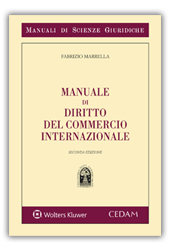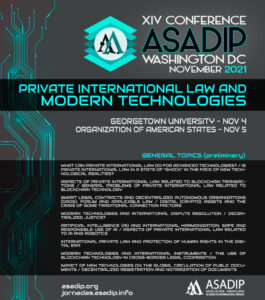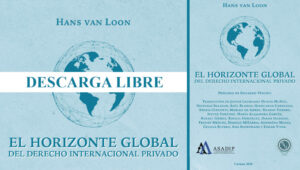By Fieke van Overbeeke, Legal Counsel at the International Institute for International and Foreign Law – the Netherlands and research fellow at the University of Antwerp – Belgium.
On 31 May 2017 the European Commission launched a proposal to adopt a special conflict-of-laws rule that determines (i.a.) which minimum wages apply to the highly mobile cross-border working activities of lorry drivers (COM 2017, 278). After more than three years of heavy debate, this proposal was profoundly modified and the Council and the European Parliament still do not find each other, leaving many aspects to be still worked out (see also the Legislative Train on the European Parliament’s website). The purpose of this piece is to give an overview of the background of this proposal, the current state of affairs and the possible influence of a special conflicts-of-law rule on the sector from a conflict-of-laws perspective.
The background of this proposal can be traced back to the unfair competition that has arisen in the EU road transport sector as a result of the enlargements of the EU to central and eastern EU Member States (in 2004, 2007 and 2013). This has led to a tripled increase in minimum wage differences between EU Member States. Given that labour costs are the largest expense in the provision of transport services, this creates a major competitive advantage for providers from low-wage EU member states.
In fifteen years, this has caused a metamorphosis of the road transport sector, with Eastern EU Member States now leading the lists of the largest transport providers in the EU. Several Western EU Member States, such as Germany and France, have responded to this competitive pressure by adopting their own national minimum wage legislation to be applied to transport operations on their territory. As a result, the EU road transport sector has become severely fragmented and the social position of drivers has been put under pressure. How could this have gone so wrong?
In the EU we have always agreed that it is not sustainable or responsible to allow competition that is purely based on labour costs. To this end, we have introduced minimum wages within the national borders and EU-wide we have developed the so-called ‘Posting of Workers Directive’ (1996/71). This Directive stipulates, amongst other things, that the minimum wages of the temporary country of employment must be applied if this is more favourable for the employee. In this way, it is ensured that efficient and innovative market players can actually compete on this efficiency and innovation (and thus not only on wage costs).
However, the Posting of Workers Directive did not come about with regard to road transport, but mainly with regard to the construction sector, where various social/economic problems arose in the 1990s. As a result, the Directive is very difficult to apply to the atypical and highly mobile road transport sector and this has led to widely divergent interpretations in the Member States, in many cases simply not enforcing the Directive at all with regard to this sector. In practice, this allows for direct competition on labour costs, with all its undesirable consequences as described above.
The EU legislator now wants to put an end to this situation by developing a special conflict-of-laws rule for minimum wages in road transport, which, among other things, determines to which transport operations the Posting of Workers Directive does and does not apply. The contrasts between Western and Eastern EU Member States, but also to some extent between central and peripheral Member States, makes for a lengthy legislative process lasting more than three years.
On 12 December 2019 the European Commission, the European Council and the European Parliament have reached a provisional agreement about some important aspects of the conflicts-of-law rule, which was approved to a certain extent within the institutions themselves in the following months: on 21 January 2020 the Parliament’s TRAN Committee accepted the provisional agreement informally by letter to the other institutions, the Council then adopted an official position on 7 April 2020 and the Commission gave its approval to the Council’s position on 14 April 2020 (subject to a number of matters not relevant here).
This looked very promising, but on 8 June 2020 the TRAN Committee suddenly threw a spanner in the works: the TRAN Committee adopted some severely different amendments compared to the position of the Council. If the plenary approves this, the negotiations will become very difficult. Yet, in this controversial legislative procedure it would not be the first time that the plenary rejects the position of the TRAN committee. To be continued!
If we take a closer look at the official position of the Council, a number of things stand out. Firstly, it is made clear that the mere crossing of a territory by lorries, also known as ‘transit’ operations, is excluded from the scope of the Posting of Workers Directive and that therefore the minimum wages of the crossed territory may not be applied to these activities. These operations are considered to be insufficiently closely connected to this territory and by extension the application of the minimum rates of pay cannot be justified.
On the other hand, the proposal provides that activities that remain within a certain territory, e.g. transport by a Polish transport company between The Hague and Rotterdam, also referred to as ‘cabotage’ operations, do fall within the scope of the Posting of Workers Directive and must therefore be subject to the minimum wages of the country where the cabotage is carried out from the first moment of the operation and if this is more favourable for the employee. These operations are deemed to have a connection only with the territory on which the cabotage is carried out and the application for these minimum rates of pay is therefore justified. In short: green light for transit operations and red light for cabotage operations.
So far the newly adopted amendments of the TRAN committee from the European Parliament on 8 June 2020 are largely in accordance with this.
But what about those intermediate forms of transport, such as bilateral transport operations between Member States A and B, or so-called ‘crosstrade’ operations carried out by a transport company from Member State A between Member States B and C? This is a lot more complicated and has been a hot issue in the legislative negotiations. Ultimately, the Council agreed to exempt bilateral transport operations, whether or not in combination with a maximum of two consecutive operations, from the Posting of Workers Directive, and therefore the minimum wages may not be applied to these operations. Crosstrade, on the other hand, must, according to the proposal, fall under the Posting of Workers Directive and are therefore subject to the minimum wages, from the first moment of this operation and if this is more favourable to the employee.
This does not sit well with the TRAN Committee, which states in its recently adopted amendments that: 1) on the one hand there should be much more possibilities to combine a bilateral transport with other transport operations and 2) on the other hand that a ‘certain number of cross-trade operations should be exempted from posting rules.’ The TRAN Committee thus opts for a much more liberal point of view. It seems that the Corona crisis also exerted influence on the discussions: many East-European Member States now regress to the argument that the road transport sector already severely suffers from the Corona crisis and point to the pivotal importance of the delivery of medicine and goods, which should release transport companies from the obligation to safeguard the social protection of their drivers.
Whatever the outcome of the negotiations, it is already clear that if a special conflict of laws rule for road transport will be adopted, it can be seen as a real ‘game changer’ for the sector since it would bring much more legal certainty regarding the application of the Posting of Workers Directive. Regarding some transport operations, internationally operating transport companies will have to take serious notice of the minimum wages they have to guarantee their drivers. Non-compliance with this new legislation is strongly discouraged: along with the new posting rules, the EU legislator aims to provide for a whole package of enforcement and control measures that are mandatory for the Member States and in which, for the first time, the EU legislator also keeps aspects under its own control.
New enforcement authorities should also be taken into account. In addition to possibly setting up a European road transport agency in the future, the more general European Labour Authority (ELA) has been set up in 2019, with the true mandate ‘to promote fair labour mobility within the EU’. It is expected that the ELA will be able to play a far-reaching role, unprecedented in the history of the EU, in the enforcement of social legislation; including in the road transport sector.
See for more information on this topic my recent article ‘Posting drivers in the EU road transport sector’, ERA Forum 2020 (freely available online). For those who read Dutch, see my PhD ‘Sociale concurrentie en conflictenrecht in het Europees wegtransport’, University of Antwerp 2018 (freely available online).
* The author is a member of the Hague-based ‘International Institute of International and Foreign Law’: www.iji.nl, which has been providing legal consultancy to professionals (judges, lawyers, notaries, mediators etc.) regarding private international law and foreign law for over a hundred years.



